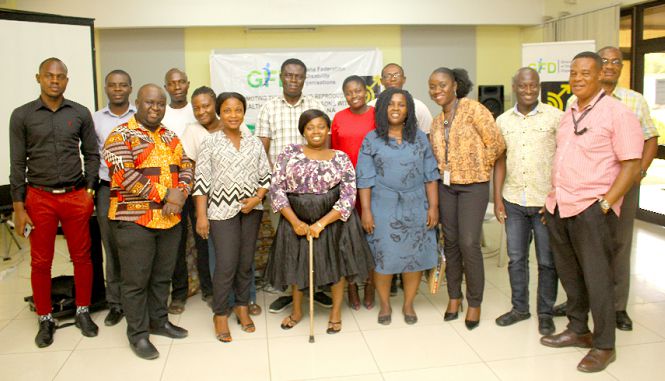
Respect sexual rights of PWDs - Consultant
The Ghana Federation of Disability (GFD) Organisations has said that the Sexual Reproductive Health Right (SRHR) of Persons with Disabilities (PWDs) in the country has been considered as an afterthought and not a priority.
According to the GFD, issues concerning their SRHR has largely been overlooked and neglected in service delivery by social and health services workers.
Speaking at a training workshop for some journalists in Accra, a consultant to the organisation, Mr Archibald Adams, said the sexual right and reproductive desires of PWDs have been disregarded by various health services in the country whiles some of them have considered PWDs as people incapable of reproduction and unfit as sexual partners.
Mr Adams noted that the needs of persons with disability in the country are often not considered at the planning and decision-making stages.
He explained that all hospitals must be disability-friendly, however that is not the reality on the ground since majority of the hospitals are not accessible to PWDs.
He called on authorities to ensure that issues bordering on the SRHS of PWDS are dealt with, pointing out that “if we begin to understand that PWDs can have sexual life and that their disability doesn’t make them incapable of enjoying sex, it will enable them to voice out such issues and this can reduce the spread of STIs in the country.
On her part, the Assistant Communication Officer of GDF, Mrs Patience Afuah, bemoaned the challenges some PWDs go through on daily basis.
“People usually see PWDs as beggars and they tend to give them money when they see them, when we do that, it makes them accept the misconception that they are incapable of taking care of themselves and should always need help.
“Sometimes most of these people are even stronger than people who are no challenged, most of them are working and have made it in life,” she noted.
